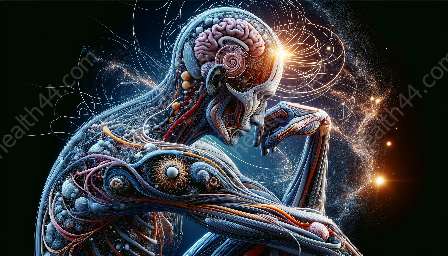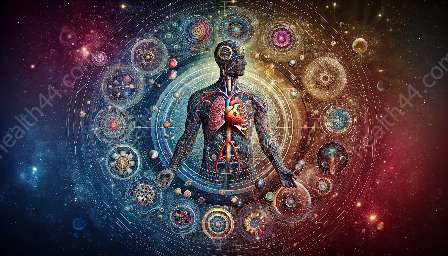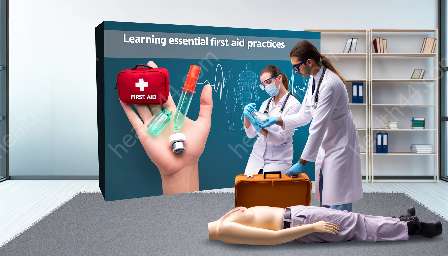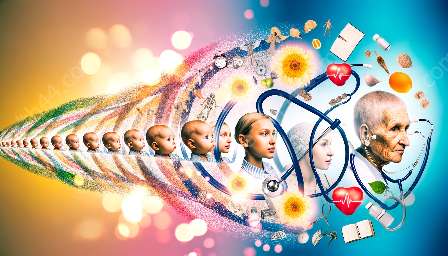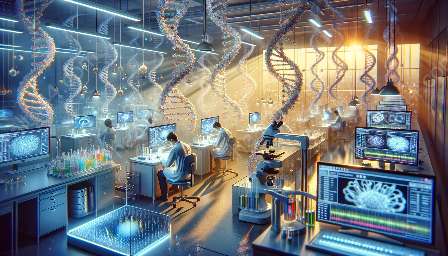Biochemistry is a captivating field that examines the chemical processes within and related to living organisms. It plays a crucial role in health education and medical training, providing insights into the molecular mechanisms underlying health and disease. This topic cluster will delve into the fundamental aspects of biochemistry, its relevance to health, and its implications in medical practice.
The Basics of Biochemistry
At its core, biochemistry investigates the chemical composition and reactions that occur in living organisms. It encompasses the study of biological molecules such as proteins, carbohydrates, lipids, and nucleic acids, as well as the metabolic pathways and signaling processes that regulate cellular functions. Understanding biochemistry is essential for comprehending the complexities of physiological processes, disease mechanisms, and the action of pharmaceutical agents.
Key Concepts in Biochemistry
In the context of health education and medical training, several key concepts in biochemistry are of paramount importance. These include:
- Molecular Structure: Biochemists explore the intricate three-dimensional structures of biological macromolecules, elucidating their functions and interactions within living systems.
- Enzyme Kinetics: The study of enzymatic reactions provides insights into the catalytic mechanisms that drive metabolic processes and their regulation.
- Metabolism: Biochemical pathways involved in energy production, nutrient utilization, and biosynthesis are fundamental to understanding normal physiology and pathological conditions.
- Genetic Information: The molecular basis of inheritance and gene expression is a central theme in biochemistry, with implications for disease diagnosis and therapeutic interventions.
Relevance to Health and Medical Practice
Biochemistry is deeply intertwined with health and medicine, influencing various aspects of patient care, research, and drug development. Medical professionals, including physicians, nurses, pharmacists, and laboratory scientists, rely on a solid understanding of biochemistry to:
- Diagnose and Treat Diseases: Biomarkers, molecular diagnostics, and targeted therapies are grounded in the principles of biochemistry, aiding in the precise diagnosis and management of diverse medical conditions.
- Understand Pharmacology: Knowledge of drug metabolism, pharmacokinetics, and drug interactions stems from biochemical concepts and contributes to safe and effective medication use.
- Conduct Research: From investigating the molecular basis of diseases to developing novel therapeutics, biochemistry underpins biomedical research endeavors aimed at advancing healthcare practices.
- Curricular Components: Biochemistry coursework is designed to cover topics such as bioenergetics, protein structure and function, molecular genetics, and biochemical pathways, emphasizing their clinical relevance.
- Hands-On Learning: Laboratory exercises and case-based learning opportunities enable students to apply biochemical concepts in practical scenarios, fostering critical thinking and problem-solving abilities.
- Interdisciplinary Connections: Collaboration between biochemists, healthcare educators, and medical practitioners facilitates the integration of biochemistry with other disciplines, promoting holistic approaches to patient care and research.
Integration into Health Education and Medical Training
Biochemistry is a cornerstone of health education and medical training curricula, shaping the knowledge and skills of future healthcare professionals. It equips students with the foundational principles necessary for interpreting clinical data, conducting research, and delivering evidence-based care. The integration of biochemistry into health education and medical training encompasses:
Embracing the Wonders of Biochemistry
Diving into the realm of biochemistry unveils the intricate mechanisms governing life, health, and disease. Its seamless integration into health education and medical training empowers individuals to explore the molecular intricacies of the human body and tackle healthcare challenges with precision and insight.

